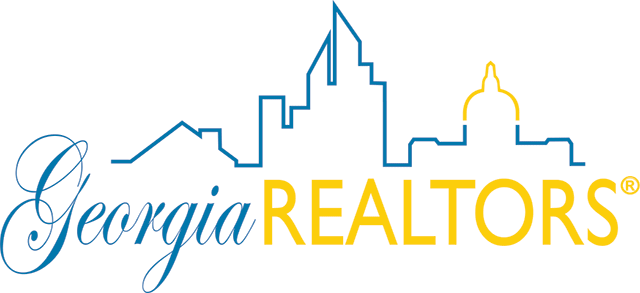
Here are some tips to maximize your real estate investment returns. You can learn more about what types of properties you could invest in by reading the following article. The article will also cover the importance of location, asset protection, and refinancing existing properties. These tips will help you maximize your investment success. This article is especially useful for first-time investors or those who plan to purchase multiple properties.
Investment properties
What makes real estate investment properties appealing for investors? The answer depends on your own goals, the market in which you live, and your preferred investing strategy. These are complex questions that require a variety of investment options. There is no single right answer. You need to weigh the pros/cons of each option. It is also important to consider where you are located. Investors in "up and coming" markets might be more inclined to invest in vacant land while investors in mature markets might be more interested residential properties.

Asset protection
You have a number of options to protect your assets when you are serious about investing in real property. While most real estate investors will use landlord insurance and conservative amounts of debt, holding real property in an LLC or trust can increase your asset protection. Consider how much equity you have built up in your properties. Your goals, risk tolerance, and investments will all play a role in the choice of strategy.
Lage
Real estate investing depends on location. This will impact the return on your investment. Although cheaper properties are not as profitable as more expensive properties, it is important to take into account the neighborhood. Some neighborhoods are more thriving than others, but some may not be the best. If you are unsure whether the property is right for your needs, take into account the area's affordability. Final, ensure that you have thoroughly checked the property before making your final decision.
Refinance existing property
Real-estate investors can refinance existing properties to get lower interest rates and lower monthly payments. This will allow them to maximize their investment. Refinance your existing properties will allow you to use the equity that has been built to the property to improve or finance other investment properties. The refinance can offer tax deductions so it's a good option for investors. But it requires several steps. Here's how to get started:

Manage your own portfolio
There are many decisions that you need to make when creating your own portfolio of real estate investments. The best asset allocation depends on your goals as well as your tolerance for risk. Investors who seek higher returns will need to be willing to take on more risk, while those seeking stable income will prefer to make safer investments. A greater tolerance for risk will lead to a more aggressive investment portfolio in real estate. How do you decide which investments to make?
FAQ
How do I get rid termites & other pests from my home?
Termites and other pests will eat away at your home over time. They can cause serious damage and destruction to wood structures, like furniture or decks. To prevent this from happening, make sure to hire a professional pest control company to inspect your home regularly.
What should I look out for in a mortgage broker
A mortgage broker is someone who helps people who are not eligible for traditional loans. They compare deals from different lenders in order to find the best deal for their clients. Some brokers charge a fee for this service. Others provide free services.
Can I buy a house without having a down payment?
Yes! Yes. These programs include conventional mortgages, VA loans, USDA loans and government-backed loans (FHA), VA loan, USDA loans, as well as conventional loans. Visit our website for more information.
Statistics
- This seems to be a more popular trend as the U.S. Census Bureau reports the homeownership rate was around 65% last year. (fortunebuilders.com)
- When it came to buying a home in 2015, experts predicted that mortgage rates would surpass five percent, yet interest rates remained below four percent. (fortunebuilders.com)
- The FHA sets its desirable debt-to-income ratio at 43%. (fortunebuilders.com)
- Over the past year, mortgage rates have hovered between 3.9 and 4.5 percent—a less significant increase. (fortunebuilders.com)
- Some experts hypothesize that rates will hit five percent by the second half of 2018, but there has been no official confirmation one way or the other. (fortunebuilders.com)
External Links
How To
How to manage a rental property
While renting your home can make you extra money, there are many things that you should think about before making the decision. This article will help you decide whether you want to rent your house and provide tips for managing a rental property.
If you're considering renting out your home, here's everything you need to know to start.
-
What are the first things I should consider? Take a look at your financial situation before you decide whether you want to rent your house. If you have debts, such as credit card bills or mortgage payments, you may not be able to afford to pay someone else to live in your home while you're away. Your budget should be reviewed - you may not have enough money to cover your monthly expenses like rent, utilities, insurance, and so on. ), it might not be worth it.
-
What is the cost of renting my house? Many factors go into calculating the amount you could charge for letting your home. These factors include location, size, condition, features, season, and so forth. Prices vary depending on where you live so it's important that you don't expect the same rates everywhere. The average market price for renting a one-bedroom flat in London is PS1,400 per month, according to Rightmove. This would translate into a total of PS2,800 per calendar year if you rented your entire home. While this isn't bad, if only you wanted to rent out a small portion of your house, you could make much more.
-
Is it worth it. It's always risky to try something new. But if it gives you extra income, why not? Make sure that you fully understand the terms of any contract before you sign it. Renting your home won't just mean spending more time away from your family; you'll also need to keep up with maintenance costs, pay for repairs and keep the place clean. You should make sure that you have thoroughly considered all aspects before you sign on!
-
Is there any benefit? So now that you know how much it costs to rent out your home and you're confident that it's worth it, you'll need to think about the advantages. Renting your home is a great way to get out of the grind and enjoy some peace from your day. It is more relaxing than working every hour of the day. If you plan ahead, rent could be your full-time job.
-
How do I find tenants Once you decide that you want to rent out your property, it is important to properly market it. Listing your property online through websites like Rightmove or Zoopla is a good place to start. Once potential tenants reach out to you, schedule an interview. This will enable you to evaluate their suitability and verify that they are financially stable enough for you to rent your home.
-
How can I make sure that I'm protected? If you're worried about leaving your home empty, you'll need to ensure you're fully protected against damage, theft, or fire. You'll need to insure your home, which you can do either through your landlord or directly with an insurer. Your landlord will likely require you to add them on as additional insured. This is to ensure that your property is covered for any damages you cause. If you are not registered with UK insurers or if your landlord lives abroad, however, this does not apply. You will need to register with an International Insurer in this instance.
-
Sometimes it can feel as though you don’t have the money to spend all day looking at tenants, especially if there are no other jobs. It's important to advertise your property with the best possible attitude. Post ads online and create a professional-looking site. Also, you will need to complete an application form and provide references. Some people prefer to do everything themselves while others hire agents who will take care of all the details. You'll need to be ready to answer questions during interviews.
-
What happens once I find my tenant If you have a lease in place, you'll need to inform your tenant of changes, such as moving dates. You may also negotiate terms such as length of stay and deposit. Remember that even though you will be paid at the end of your tenancy, you still have to pay utilities.
-
How do you collect the rent? When it comes time for you to collect your rent, check to see if the tenant has paid. You'll need remind them about their obligations if they have not. Before you send them a final invoice, you can deduct any outstanding rent payments. You can call the police if you are having trouble getting hold of your tenant. They will not usually evict someone unless they have a breached the contract. But, they can issue a warrant if necessary.
-
How can I avoid problems? It can be very lucrative to rent out your home, but it is important to protect yourself. Make sure you have carbon monoxide detectors installed and security cameras installed. Make sure your neighbors have given you permission to leave your property unlocked overnight and that you have enough insurance. You should not allow strangers to enter your home, even if they claim they are moving in next door.